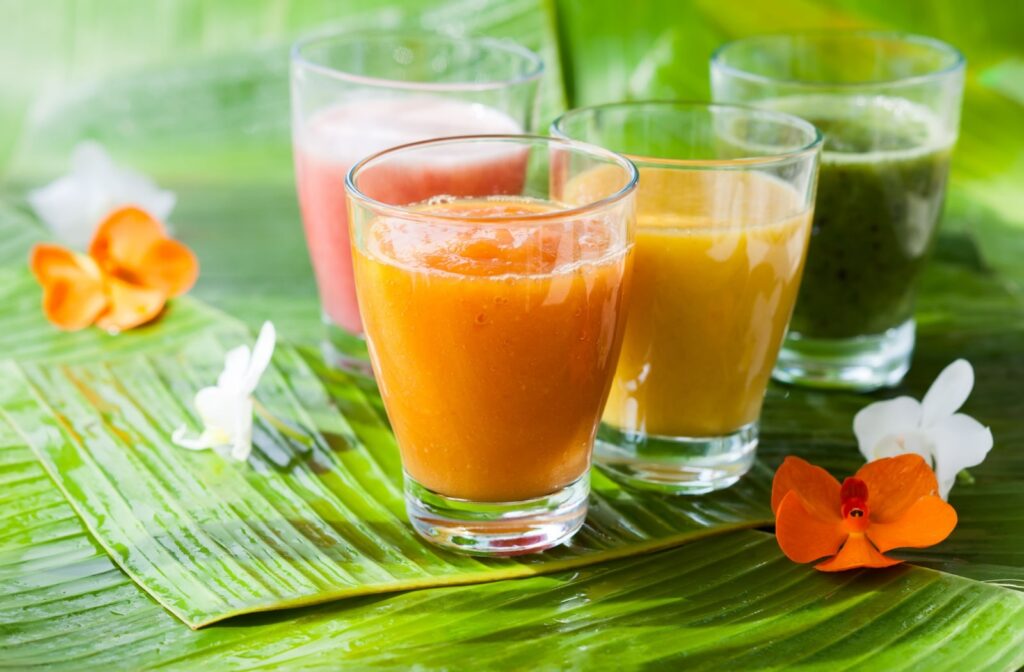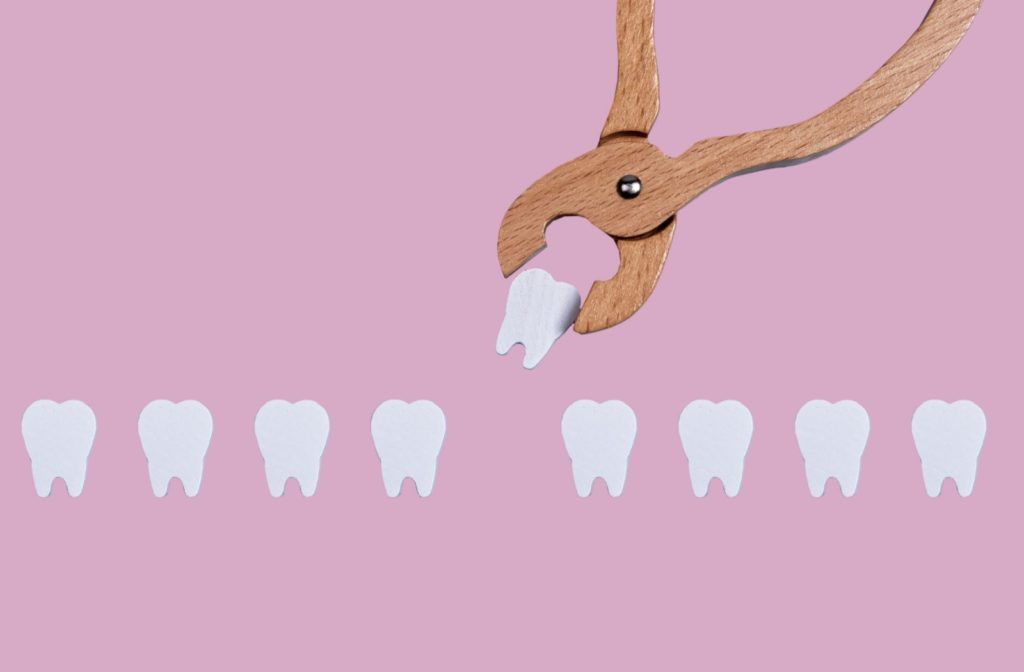What Can I Eat After Wisdom Teeth Removal?
When faced with the discomfort of wisdom teeth removal, the last thing you want to worry about may be what is for dinner. However, what you eat directly after surgery is critical to your recovery. Ignoring post-wisdom teeth dietary guidelines can lead to complications that may set you back on the path to healing. Fortunately, your dentist can help you navigate this tricky time.
After wisdom teeth removal, focus on eating soft foods while avoiding anything hard or chewy. You can return to your regular diet eventually, just as long as you keep your teeth clean.
Good Foods to Eat After Removal
Soft Foods
For the first 24–48 hours post-surgery, your mouth will not be able to handle any solid foods. You will likely need to rely on soft foods to sustain you during this initial healing phase. However, soft does not have to mean flavourless. Plenty of tasty options can keep you energized, hopefully without causing pain.
Generally, any pureed food that requires no chewing is your friend. Here are some tips for your first couple of days after surgery:
- Pudding
- Mashed potatoes
- Applesauce
- Yogurt
- Broths
- Pureed fruit
- Cottage cheese
- Hummus
Nutritious Smoothies & Soups
While avoiding pain is important, you still need to eat nutritious foods while recovering. Try blended soups and smoothies to get essential nutrients while your mouth is healing. A fruit smoothie with plain yogurt and milk can be a delicious snack. However, avoid strawberries, blackberries, or anything else with seeds that could get stuck.
A protein-rich diet is important for a speedy recovery, so you can add powders or Greek yogurt if you are looking for a boost. Be cautious with straws, as they can dislodge stitches or blood clots.
If you prefer soup, make sure it is not too hot and there are no chunks that may irritate the surgical area. Blend boiled veggies, such as tomato and pumpkin, until the soup is smooth.
Recovery Beyond the Liquid Phase
Once you pass the initial stage, you can progress to more substantial yet gentle foods.
Semi-Soft Foods
These require a little more chewing, but not too much:
- Scrambled eggs offer a gentle way to incorporate protein.
- Oatmeal or porridge are filling and often come in instant varieties for ease.
- Well-steamed fish can be flaked into bite-sized pieces for added protein and omega-3 fatty acids, which can expedite healing.
Cold Food
Incorporate cold foods to help reduce swelling and numbing discomfort:
- Homemade banana ‘ice cream’ is a healthier treat than traditional alternatives. Simply blend frozen bananas to a creamy consistency for a cool, healing snack.

Chew with Care
Eventually, you can slowly introduce dishes that require more chewing but still are not too tough.
- Pancakes or soft waffles can satisfy a breakfast craving with little effort.
- Very soft cooked vegetables, such as carrots, should be overcooked enough to be easily mashed with your tongue before swallowing.
Foods to Avoid After Removal
Just as it is important to know what to eat, it is just as essential to know what to avoid after wisdom teeth removal to prevent complications. Staying away from certain foods can protect your healing mouth from infection, irritation, or damage.
Difficult Chewers
Hard, crunchy, or difficult-to-chew foods must be avoided, as they can injure the sensitive surgical site or lead to additional complications. Stay away from:
- Chips and pretzels
- Nuts and seeds
- Hard candies
Spices & Acids
Spices and excessive heat can unnecessarily aggravate your mouth. Avoid foods that are:
- Very hot
- Spicy, such as hot wings
- Acidic, including citrus fruits and juices
Small Foods
Maintaining proper oral hygiene is crucial for preventing infection as you recover. However, certain foods can get lodged in your extraction sites and lead to complications. Stay away from:
- Small seeds or grains
- Popcorn
- Sticky or chewy candies
Tips for Wisdom Teeth Removal Recovery
Now you know what to eat, but you can take several other steps to promote a speedy recovery. Recovery typically takes 3–4 days, but some people may feel effects up to 2 weeks later.
Hygiene Habits
Keep working on your dental hygiene, but do so gently. Brush your teeth softly while avoiding the extraction sites directly. The day after surgery, you can rinse your mouth with warm water. Saltwater is particularly good at stopping bacteria growth and promoting healing.
Aim to rinse your mouth around 4–5 times daily as you recover. This can be as simple as adding half a teaspoon of salt to a cup of water and swishing it in your mouth. Make sure you do not spit too hard, as it could dislodge the clot.
Recognizing Complications
Familiarize yourself with the signs of complications. Swelling is common during the week after surgery, but bleeding should stop quickly after the procedure. Contact your dentist or oral surgeon immediately if you notice extreme pain, swelling, pus, or a fever.
Smooth Recovery
Your post-wisdom teeth removal diet does not have to be bland, dry, or limiting. With the right preparation, you can enjoy various flavours and nutrients that can aid in your recovery.
Remember, patience is key. This phase will pass. Your mouth is healing, and just like teething, that tends to be a tender process. Contact us if you have any questions about wisdom teeth removal. Our Dentistry on Danforth team is here to help you every step of the way.


